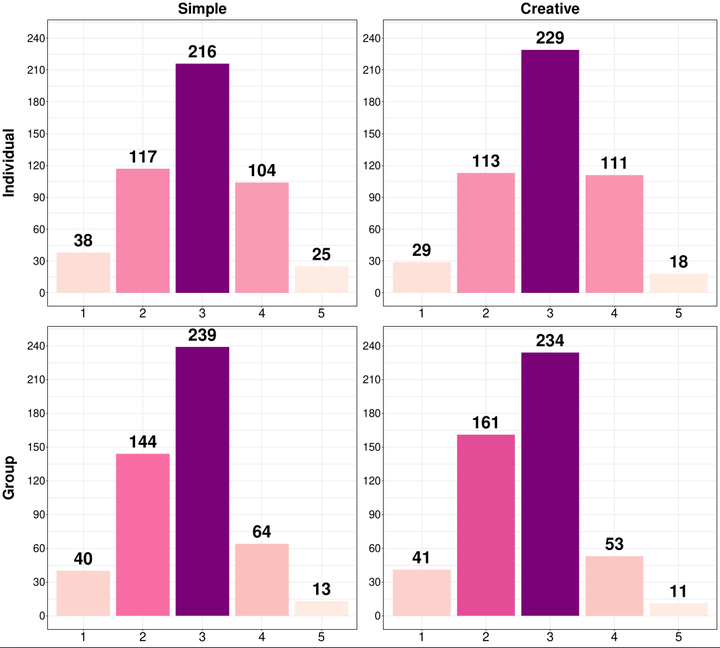
Abstract
With the advance of the COVID-19 pandemic, many companies in the world have embraced telework. Despite the large volume of related studies, only few of them have addressed telework in relation to types of assignments and employment. In this context, we pose an open question of how productivity in an online environment depends on formats of work, remuneration systems and socioeconomic factors in comparison to a face-to-face environment. We collect the data of 500 Japanese employees through the stratified questionnaire survey, empirically examining and characterizing the perceived telework productivity for carrying out simple and creative tasks in individual and group formats as compared with face-to-face productivity. The three main findings are obtained. First, online productivity tends to be noticeably low for group format as compared to individual format, especially when carrying out creative tasks. Second, we find that managerial affiliation and sleeping hours tend to translate into, respectively, low group productivity and low individual productivity for both simple and creative tasks. Third, our study demonstrates that online productivity is unconditionally exacerbated under a seniority-based system as compared to a performance-based system. Overall, our findings reveal the difficulties faced by employees when performing group tasks remotely, pointing at the importance of professional incentives for increasing collective productivity of telework. The caveats we identified can thereby help companies to improve their transition from a face-to-face to an online environment.